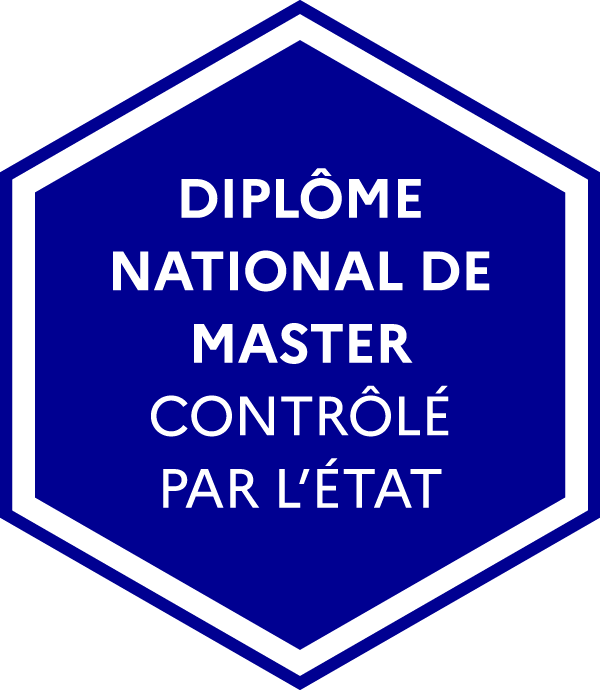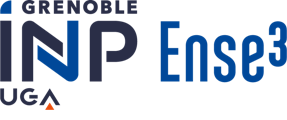Overview
Master
National diploma- Degree awarded Master
- Mention
- Signal and Image Processing
-
Location
- GRENOBLE Scientific Polygon
- Duration 1-year program
-
Available as
- Initial education
Summary
The Master degree Mobile, Autonomous and Robotic Systems (MARS) is an advanced and highly competitive academic program on artificial intelligence, control theory, mechatronics, drones, embedded systems, diagnostic and reliability, cybersecurity and intelligent mobility. This master program is entirely taught in English.
Objectives
The international Master degree in Mobile, Autonomous and Robotics Systems aims at offering a better understanding of the technical and scientific aspects of connected and autonomous mobile robotic systems and to understand their interactions. In addition a 6-month internship in a laboratory or research industrial center will allow students to get a pratical understanding in the field of autonomous systems and robotics.
This master deals with the following areas of expertise:
• Mobile and aerial robots that can act and evolve autonomously in complex environments.
• Perception for detection and tracking of moving objects.
• Navigation and Path Planning
• Robotic operating system (ROS)
• Artificial intelligence planning for autonomous robots requiring little or no supervision
• Machine learning
• Advanced methods for optimal control and predictive control
• Methods to monitor and diagnose dynamic systems with a study on the reliability of a systems subject to failure
• Distributed optimization and game theory
• Embedded systems: microcontrollers architectures and sensors for robotics
• Cyber-security: Make risk analysis, detect cyber-attacks and develop strategies. Implement some cyber-security mechanisms, on the communication infrastructure and on the robot systems
• Intelligent mobility and transportation to improve the safety of the vehicle and the comfort of the passengers, as well as the detection and reconfiguration of the controllers in case of emergency.
• Multi-vehicle coordination, in the perspective of understanding the behavior of groups of autonomous and non-autonomous robotic systems.
This program is intended for international students that want to work in the field of robotics, automotive, aeronautics, and industry. The courses are given by highly qualified professors and professionals. The training is supported by researchers from associated research laboratories and practitioners from industrial partners.
Why choose this master?
• Existing practical labs on robotics and drones.
• Attractive courses given by internationally renowned professors and researchers.
• Research activities carried on robotics and autonomous systems.
• The possibility to find a job in public and private laboratories as well as in industrial research centers in the fields of environment, robotics, data science, energy, and mobility.
• The dynamic international and industrial environment of Grenoble.
-
Training partners
Laboratories
Research laboratories: Gipsa-lab, Gscop, LIG, INRIA
Industrial partners: Automatique & Industrie, Actemium, Airbus Defence & Space, CNES, Onera, Atos Origin, Assystem, Areva, Bosch, Delphi, EADS, EDF, PSA, Renault, RTE, Safran, Schneider Electric, Staubli, SNCF, SNR, Thales, ST Microelectronics, Total, Valeo, Vestas, Veolia eau, Ministère de la défense.
Admission
-
Available as :
- Initial education
Entry requirements
Applications for the 2026-27 intake are open from the 16th of October 2025 to the 15th of May 2026.
► Application requirements:
- Academic requirements:
- Bachelor degree in either Science (BSc) or Engineering (BEng) in a field related to Robotics, such as: Mechatronics, Automatic control, Computer science, Electrical engineering, Mechanical engineering, Applied mathematics.
- You should be at minimum in your 4th year of higher education (either in Master 1st or Bachelor 4th).
- Your GPA should be at least 3 out of 4 (or 4 out of 5) on the core subjects related to the master. - English langage requirements:
- You must have the equivalent of a B2 (CEFR) level and provide one of the following test: TOEFL IBT: 72 and upper / TOEFL ITP: 543 and upper / TOEIC Listening and reading: 785 and upper / TOEIC speaking and writing : 160 and upper / IELTS: 5.5 and upper
- If English is your education language you do not need to provide a language test but you must provide a certificate from your university stating that English is the medium of instruction was English during your studies.
- If you are native from an English-speaking country, you do not need to provide any document. - This master is only open to international students.
The Master's degree in Robotics and Autonomous Systems is a highly competitive academic program (duration: one year, M2 level). Applicants selection is done on the basis of prior academic and/or scientific achievement as documented by their academic background and results.
For students with a foreign degree, applications are definitely authorized by the Committee for Academic Accreditation at Grenoble university (CVA). Several meetings are organized several times a year (February, March, April, May, June) to select applications from abroad.
It is strongly recommended to apply as soon as you can.
► Application link:
Please apply on our platform: https://applicationform.grenoble-inp.fr/FSA2/676?lang=enRequired documents to upload on the platform:
- Language certificate or certificate of studies in English (unless English native)
- Curriculum Vitae (CV)
- All academic grade transcripts available (bachelor or engineering degree)
- Diploma or certificate of achievement, or letter of graduation
- Cover letter
- Recommendation letter(s)
CAMPUS FRANCE APPLICATION
Students who reside in one of the following countries have also to apply throught the "Etudes en France" procedure : https://www.campusfrance.org/en/faq/which-countries-are-affected-by-the-etudes-en-france-studying-in-france-procedure
https://www.campusfrance.org/en/application-etudes-en-france-procedure
► Tuition fees:
- For European students (European Union, European Economic Area, Andorra or Switzerland) and for students from Quebec fees will be: €1,484 per year, plus campus tax*
- For non EU-students fees will be: €5,171 per year, plus campus tax*
*Fees are indicative for the 2025-26 academic year, as the fees for the next intake have not yet been voted; please note that all students will also have to pay the campus tax of €105 (Contribution Vie Étudiante et de Campus) upon enrollment.
Scholarships: you can find information on: https://www.grenoble-inp.fr/en/academics/incoming-scholarships*The international office will apply on your behalf to the IDEX and Eiffel scholarship programmes. We therefore kindly ask you to refrain from sending a separate application to these programmes.
► Getting organized
For information on housing, daily life, visas: getting-organizedContacts
Head of the master
Olivier Sename
Administrative Contact
International Relations Ense3
Program
- Course duration 1-year program
Program
First semester
Academic program
The first semester (30 ECTS) is restricted to theoretical lectures, practical labs and computer sessions, multidisciplinary projects, and examinations.
Second semester
The second semester (30 ECTS) is a master thesis with an objective to develop students’ research skills and capabilities to work independently and creatively in order to propose solutions to research problem.
It can be conducted in a research laboratory or an industrial research center, in France or abroad. The duration is between 5 and 6 months. The defense takes place by the beginning of July or the beginning of September. The report must follow standard criteria of a scientific paper.
The primarily scientific contents of the master thesis englobes at least one of the following topics: autonomous systems, robotics (mobile and aerial), transportation and mobility, cyber-physical systems, artificial intelligence, embedded systems, optimization, and control, etc.
Scientific culture course:
• Seminars
• Laboratory visits and business
• Management of technical innovation
• Scientific ethics
• French language (FLE)
Prospects
Careers
Job Opportunities:
At the end of the curriculum, students are able to
• Design, model, simulate, and propose technical specifications
• Perform, analyze tests, and optimize the performance of robotic system
• Derive and apply global and local numerical models
• Conceive prototypes, new products or new processes. Implement hardware and software architectures
• Propose and conduct an applied research project for robotic, autonomous systems
Jobs:
• Control and Automation Specialist
• Robotic Navigation and Perception Specialist,
• AI and Machine Learning Specialist,
• Robotics Engineer, • Academic Career
Business Sectors:
• Mobile robots
• Mechatronics
• Aeronautics, aviation, and drones
• Transportation, automotive, autonomous cars
• Defense
• Industry
• Smart houses
• Environmental technology
Further learning opportunities
Graduated students are encouraged to do a PhD in the field of mobile and aerial robots, autonomous vehicles and systems. This master degree allows graduated students to find a job in public and private laboratories as well as in industrial research centers.
French State controlled Master's degree

International Students and Scholar Offices - ISSO
→ https://international.univ-grenoble-alpes.fr/en/



